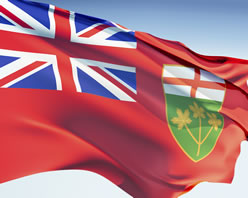Drug Fact Sheet: Ecstasy
Welcome to the first of our monthly drug fact sheets! A lot of us know the names of common recreational and prescription drugs, but do you know where they originated from, how they are produced, or what their effects really are? Each month we will take a look at a new substance and cover a few facts you should probably know about them. To kick off the new year we will be starting with Ecstasy and “party drugs”. While any drug you take while partying could be called a party drug, party drugs are usually substances that lead to loss of inhibition, lost sense of time and judgment, and a dissociative state that allows party goers to rave for hours without realizing a need to rest or nourish themselves. Therapeutic Origins of Ecstasy Ecstasy goes by many names including MDMA and Molly. True to its name, Ecstasy affects the part of the brain that controls mood and can make users feel very loving and happy go lucky. The chemical compound was patented back in 1913 by Merck, but after that they never pursued marketing or even produced it. Dr. Alexander Shulgin has been credited as the father of modern Ecstasy and other party drugs after he started tinkering with hallucinogens in the 1970s. He first synthesized and tried Ecstasy in 1976 and while many blame him for it gaining such traction in the 1980s, he had always intended it to be used therapeutically. He sent samples to therapists to try with their patients and recorded their observations. However, just 10 years after he first experienced Ecstasy, the drug had made its way into so many nightclubs and there were so many bad reactions due to backyard chemists and dealers that the DEA put Ecstasy on its Schedule 1 list of dangerous drugs. Ecstasy, like a lot of other party drugs, may have started out rather innocuously but became potentially very dangerous due to the illegal drug trade. In the original rave days, Molly was supposed to be an even purer form of Ecstasy as it was exclusively MDMA (methylendioxymethamphetamine) the active ingredient in Ecstasy. However, today you can never be sure what your drugs are cut with, and many police seizures of pills show there is no MDMA at all in most pills being marketed as Ecstasy. In the late 2000s, only 13% of the Molly seized by the DEA in New York contained MDMA and even then it was still cut with other toxic chemicals. References: http://www.narconon.ca/drug-information/ecstasy-history.html http://www.latimes.com/local/obituaries/la-me-alexander-shulgin-20140605-story.html https://globalnews.ca/news/1603229/what-is-party-drug-molly/ http://www.cnn.com/2013/11/22/health/9-things-molly-drug/index.html http://www.healthcommunities.com/substance-abuse/drugs.shtml The post Drug Fact Sheet: Ecstasy appeared first on Canada Drug...
Gaming Addiction now a WHO Designated Disorder
The World Health Organization (WHO) has begun 2018 by adding “gaming disorder”, or gaming addiction, to its International Classification of Diseases (ICD). This comes after years of rumblings by health professionals noting addictive behaviours exhibited in some video gamers. The Diagnostic and Statistical Manual of Mental Disorders (DSM) is the “bible” of psychiatric disorders. In 2013, the most recent edition of the DSM listed internet gaming disorder as a “condition for further study”. This shows how much traction this concept has gained over the last five years to now officially list it as a disorder. Gaming is a process addiction, like gambling and sex addiction. This means a person has an addiction to doing something rather than consuming something. A substance addiction is when consuming things like drugs and alcohol becomes a compulsion. The WHO report outlines many specifics that must be considered before a person can be diagnosed with gaming disorder. Their desire to play video games must overtake the need to do other important activities in their daily life. This kind of behaviour should also be observed for at least a year before a diagnosis is given. Emotional signs of video game addiction can look like isolation from friends and family so the person can spend more time gaming, and irritability when unable to play. These kinds of emotional signs are common across addiction types. Gaming disorder also has physical symptoms like carpal tunnel syndrome from overuse of controllers or keyboard and mouse, poor hygiene as they spend more time in the game, and headaches from the artificial screen light. It is hoped by gaming addiction being classified as a disorder, those who suffer can have better access to treatment options. Those with a gaming disorder must not be shamed or laughed off just because it is a new diagnosis. As a society, we have recognized some people’s predisposition for excessive gambling for centuries. Therefore, this process addiction is just a sign of our modern era and the new vices available to people. Even prior to the WHO’s announcement there were countries who had independently declared gaming addiction as a disorder. There are many private treatment facilities that are already operational and aim to treat this disorder. In countries that had not yet added this classification, the WHO declaration will make it easier for public funding to become available and provide avenues for proper medical treatment plans. References: https://www.sunshinecoasthealthcentre.ca/2015/06/process-addiction/ http://www.bbc.com/news/technology-42541404 https://www.psychguides.com/guides/video-game-addiction-symptoms-causes-and-effects/ The post Gaming Addiction now a WHO Designated Disorder appeared first on Canada Drug...
Healthy Goal Setting for the New Year: Avoiding the Shame Game
New Years can be a daunting time, and New Year’s resolutions have the potential to be both exciting and intimidating. Let’s go through some steps to improve one of the most common new year’s goals one so that it will inspire rather than depress you: 1. Make it Positive Rather than “I want to lose weight” try “I want to get healthy”. Being thin isn’t the pinnacle of success, and focusing too much on the external can diminish your internal self worth. Being healthy is a positive goal both for your body and mind, whereas wanting to lose weight for looks frames your body in a negative light. Probably not a great foot to start your healthy journey on, right? 2. Make it Intentional Rather than “I want to get healthy” try “I will be healthy”. Changing the tense sounds little, but can really make a difference in your mentality. Is this something you want to do? Or is this something you WILL do? Saying you will do it means you are prioritizing this achievement of this goal rather than just wishing it would happen. 3. Make it Specific Rather than “I will be healthy” try “In order to achieve my goal of a healthier life, I will eat at least 2 servings of veggies a day”. This gives you something actionable to work on (i.e. SMART goals). What does healthy mean to you? Sitting down and thinking about what your goal means to you and how you will be able to work towards it is very important for your success. Happy New Year! Drop your goals in the comments! If you need help with them, we can work on them there so others can learn as well. The post Healthy Goal Setting for the New Year: Avoiding the Shame Game appeared first on Canada Drug...
Comment on What is a “dry drunk”? by What is a “dry drunk”? | Vancouver Detox
[…] post What is a “dry drunk”? appeared first on Canada Drug […]
Comment on Contact by Treatment Centers Supporting Methadone Maintenance | Vancouver Detox
[…] For more information on these treatment facilities, on methadone maintenance, or other addiction-related inquiries, contact us. […]
Comment on Contact by Your Checklist When Looking for Addiction Treatment | Vancouver Detox
[…] If you have any questions or inquiries regarding accessing addiction treatment or anything addiction-related, we invite you to leave a comment below or contact us. […]




